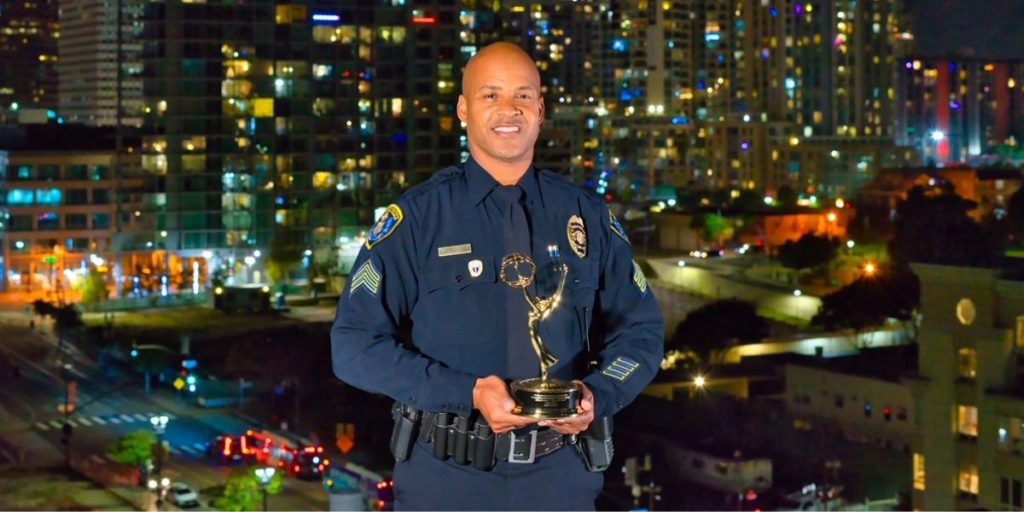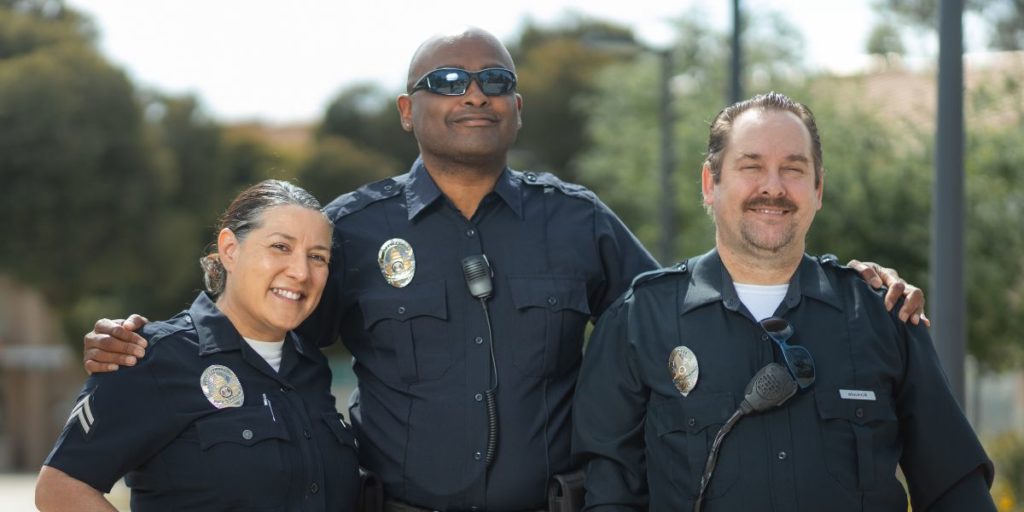Articles
What we’re contemplating, doing, and reading.
What Does it Take to Support the Wellness of a Police Department?
Sergeant Edwin Garrette, who leads the Wellness Division at San Diego Police Department, talks to us about attending to the wellness of sworn officers and support staff in a large agency. Sgt. Garrette is also a Certified Instructor of Compassion Institute’s Courageous Heart Program, offering Resilience and Compassion Training to officers and staff throughout California.
Thank you for taking the time this afternoon to chat with us. The San Diego Police Department wellness unit is very highly respected and known across the country for its forward-thinking approach in terms of wellness. Could you tell us more about what it takes to attend to wellness for a large police department?
Yes. I’ve been with the San Diego Police Department for 25 years. I’m a police sergeant and I oversee our police officer wellness program. Our officer wellness program has been around since 2011, so we’ve been in the Wellness business for quite some time now. My unit is responsible for overseeing our police therapists, our police chaplains, and we also have almost 150 Peer Supporters. Our Peer Supporters are trained employees from divisions across SDPD who signed up to take on additional responsibilities to offer support to colleagues. We provide services for both sworn officers, and all of our civilian personnel. Part of what makes us unique is that we have Peer Supporters embedded in all of our civilian units as well, including our crime lab and forensic science lab. We’ve recruited Peer Supporters in these units to ensure that they are not overlooked when it comes to police wellness, and can get their needs met or get referrals to us.
That's amazing. So for the personnel that you are serving within the PD, what are some of the services that you offer and how are the services used?
We have a Psychological Services Program, staffed by a team of culturally competent police therapists who are contracted outside of the Agency. Cultural competency is very important due to the nature of our work. It’s essential that the Psychologists have a deep understanding of the profession, so we have provided advanced training for our Psychologists at SDPD. Some of our psychologists also include some former police officers and law enforcement personnel who have switched careers. All SDPD personnel can utilize our psychological services as often as they need – sessions are unlimited. We also offer psychological services to anyone who is living with that officer. So the police officer, their spouse, and their children can use the services as often as they want.
One of the reasons why that’s important to us is understanding that those officers are primarily with their families more than they are with us. We understand that a happy and healthy family environment is going to lead to a healthy officer at work – the same way we realize that a healthy officer at work typically will lead to a healthy family life at home. At least that’s the hope, so we offer these services to the family and to the officers.
We have 13 Police chaplains, our chaplains do an amazing job of being embedded with us, meaning that they are consistently on ride-alongs, inside the divisions, at police line ups, and they come out to all officer-involved shootings. In the Wellness Unit, we are also on-call 24/7. We are regularly called out to critical incidents where a wellness response is deemed necessary. When wellness personnel respond to a critical incident, we always have a chaplain on the call-out with us to assist. They are very much out on the frontline with us, riding with the officers, and working with the lieutenants and the captains in their assigned divisions. They are a wonderful resource for us. As are the ~150 Peer Supporters. Our peer supporters are the eyes and ears of our wellness unit. We have five full time wellness unit employees and we really lean on peer supporters to bring people in crisis to our attention. So that’s why our team is so big, and why they have a lot of responsibilities.
For example, we will match OIS Peer Supporters with officers during an OIS incident. The importance is that they have knowledge of how that OIS investigation process works. And so they can relieve some of that anxiety that the officers may be going through at the scene and afterwards.
We have peer supporters that have special skill sets – maybe they’ve gone through cancer or have had a cancer diagnosis. So we’ll team them with people who may be going through the same type of medical challenge. We have peer supporters that are geared towards elderly care and caregiving for parents, so when people are taking care of their parents, and going through that type of stress, we have people who have been there, and who know what that looks like, and they can provide that guidance and support. It is a peer supporter’s responsibility to follow up periodically with employees after the critical incidents and/or referrals. Our wellness unit and our peer supporters sign a confidentiality contract. It is important that employees feel safe when speaking with us.
The Wellness Unit will also advocate for employees. So, it’s important that we don’t just respond, triage them, get them the counseling they need, and then just leave them alone. Built-in follow-ups are critical. People want to know that someone cares about them. And that’s of the utmost importance. A lot of what we do in our Wellness Unit is actively listen, show compassion, and show empathy. Everyone has been through something at some point and most people just want some to listen and understand. We’re not licensed counselors, but we’re very good active listeners. We also recently added a facility dog full-time in our unit. That’s been a big success, everyone loves him.
This has been one of the most important assignments I’ve had, because there is nothing more important than taking care of the people that are out there taking care of our community. Understanding what this job looks like having done it for 25 years, and being the son of a police officer, and having a wife who is a police officer, I really understand how the job can tear you apart if you don’t live a balanced life and utilize wellness resources. Healthy and happy police officers lead to healthy and happy communities. Be well.



